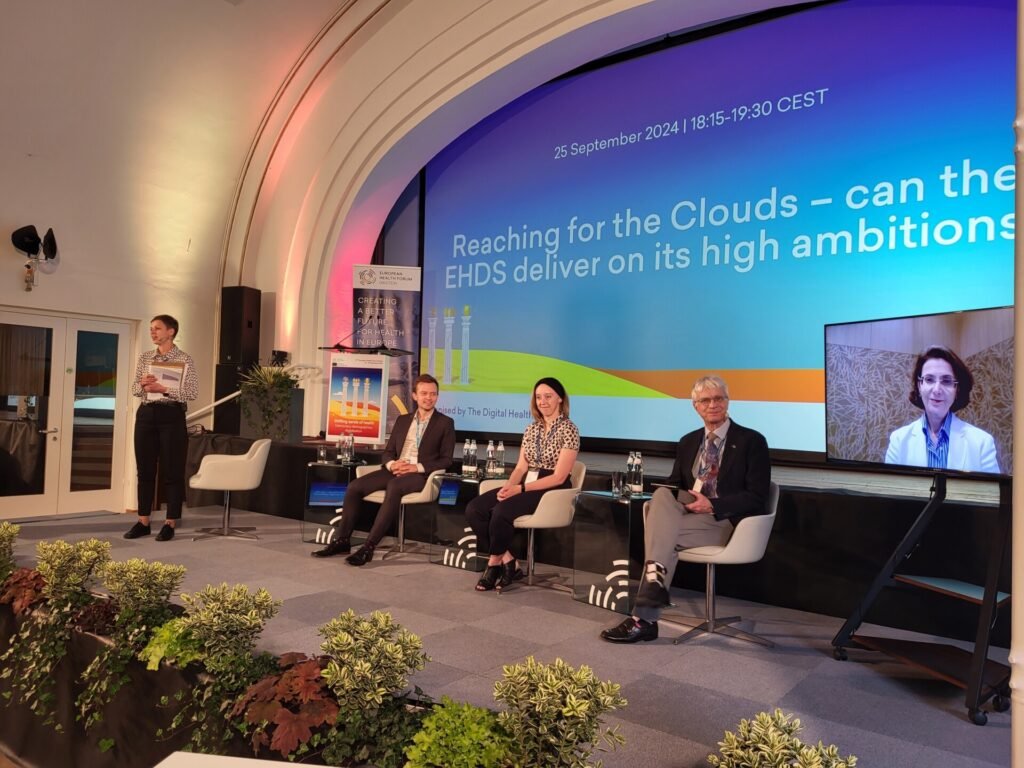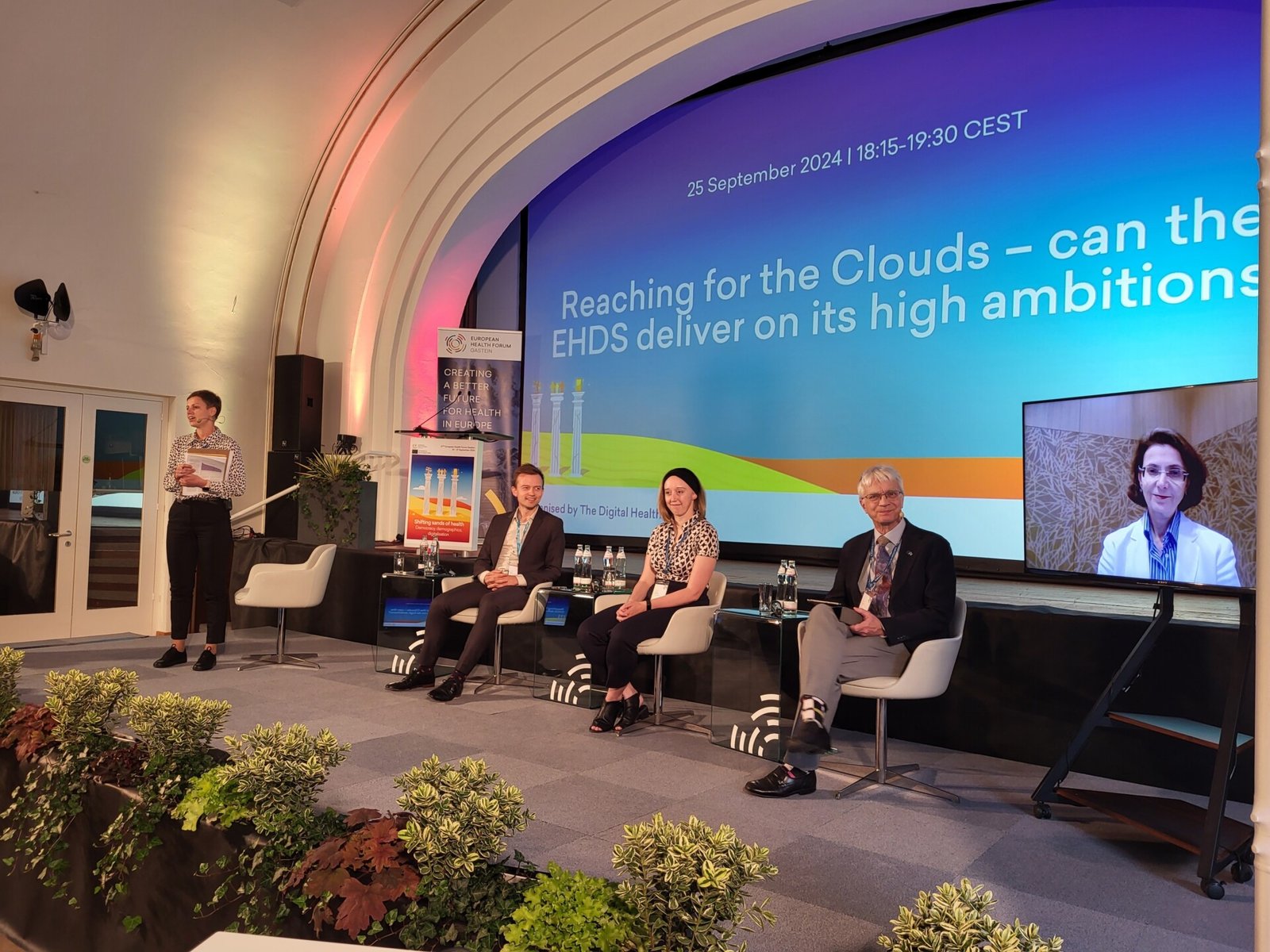Last month, The Digital Health Society, the data arm of ECHAlliance hosted a session “Reaching for the Clouds – can the EHDS deliver on its high ambitions?” at the European Health Forum Gastein. The session was supported by IQVIA and its main aim was to explore the risks, challenges and barriers to realising the EHDS, and how can we ensure its inclusive implementation.
The moderator, Karolina Mackiewicz, Innovation Director at ECHAlliance, was joined at the stage by the speakers representing diverse perspectives – from government to industry to society. The speakers were:
- Mario Jendrossek, European and International Affairs Director at Health Data Hub – involved in health data access initiatives;
- Nicola Hamilton, Head, Understanding Patient Data, focusing on making health data use understandable and trustworthy;
- Tapani Piha, Advisor to Finnish Ministry of Social Affairs and Health and former European Commission Head of Unit, involved in various EU health-data related projects;
- Meni Styliandou, VP, Global Program Leader, Health Data Partnerships, Takeda, also leading the IHI H20 project aimed at creating new data to support the EHDS.

Here are the 10 topics points derived from the discussion:
- Understanding and implementation of EHDS: There is significant complexity in understanding the European Health Data Space (EHDS) regulations and their relationship with other frameworks like the Data Act and AI Act. Member States vary in readiness, with some lacking the necessary infrastructure and resources for compliance, but there is a collective ambition to facilitate access to health data for public interest.
- Building trust in data sharing: Maintaining public trust in the use of health data is essential. Clear communication about the benefits of data sharing, alongside positive stories and examples, can help address public concerns. Engaging stakeholders—such as healthcare professionals, researchers, and patients—in discussions about data use fosters a sense of ownership and transparency.
- Governance models and data trust: Innovative governance models like Data Trusts can empower patients and establish a framework for ethical data sharing. These models ensure that data is managed transparently and in the public interest, fostering collaboration between technology partners and patients.
- Mindset and cultural variations across Europe: Attitudes towards data sharing differ across European countries, reflecting a “four-speed Europe.” Some countries view health data as a valuable resource, while others see it as a barrier, indicating a need for a cultural shift toward viewing data sharing as beneficial.
- Incentives for data sharing: Identifying incentives for data holders to share data is vital. The discussion suggested that enhancing efficiency in healthcare through digital technologies could create win-win scenarios that encourage data sharing, while viewing technology as a facilitator rather than an obligation.
- Challenges in implementation: Slow progress in implementing digital health initiatives, such as e-prescriptions, highlights the need for local-level political commitment and resource mobilization. While policy frameworks can be established, real change requires dedicated efforts on the ground.
- User-centric design and digital literacy: Emphasizing user-friendly digital health tools is crucial for encouraging adoption among patients and healthcare providers. Building digital health literacy and involving end-users in the design process can enhance confidence and trust in new technologies.
- Addressing technophobia and resistance: Technophobia among decision-makers and resistance from data holders can impede progress. There is a need for ongoing training and support for healthcare professionals and strategies to encourage data holders to view sharing as an opportunity rather than a threat.
- Public expectations and transparency: Citizens expect health data to be utilized for the public good, with a clear understanding of how their data will be used. Ensuring transparency in data usage and addressing societal concerns about commercial exploitation is vital for fostering trust.
- Public investment and co-benefits: Public investment in health data infrastructure is essential for enhancing public health surveillance and improving efficiency across various projects. Investments can yield multiple benefits, supporting regulatory and research needs while promoting collaboration among stakeholders.
Watch the whole session for more insights:
The recording of the session is available here

Picture courtesy of EHFG

